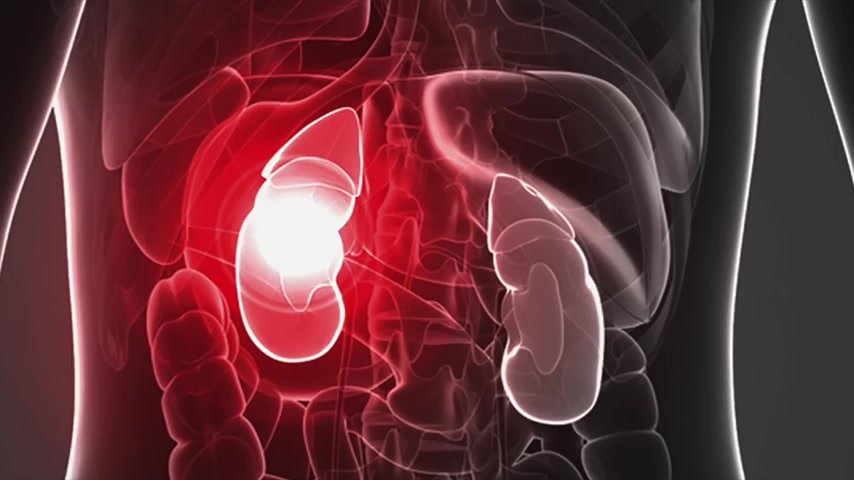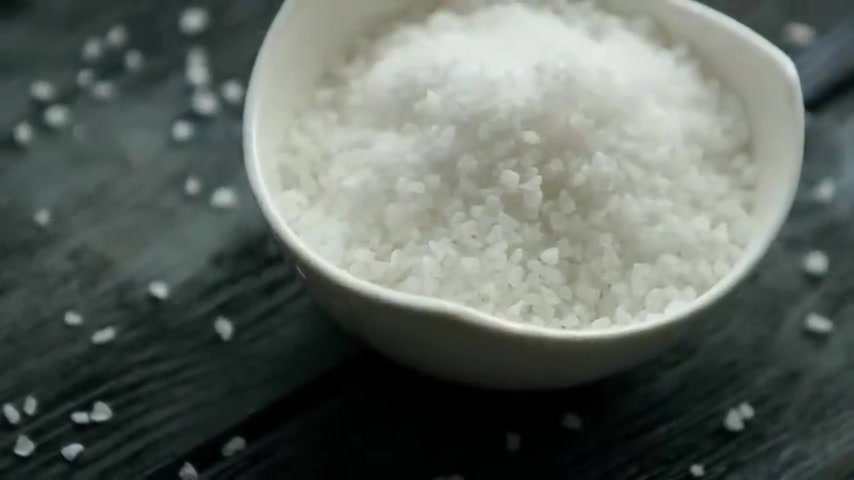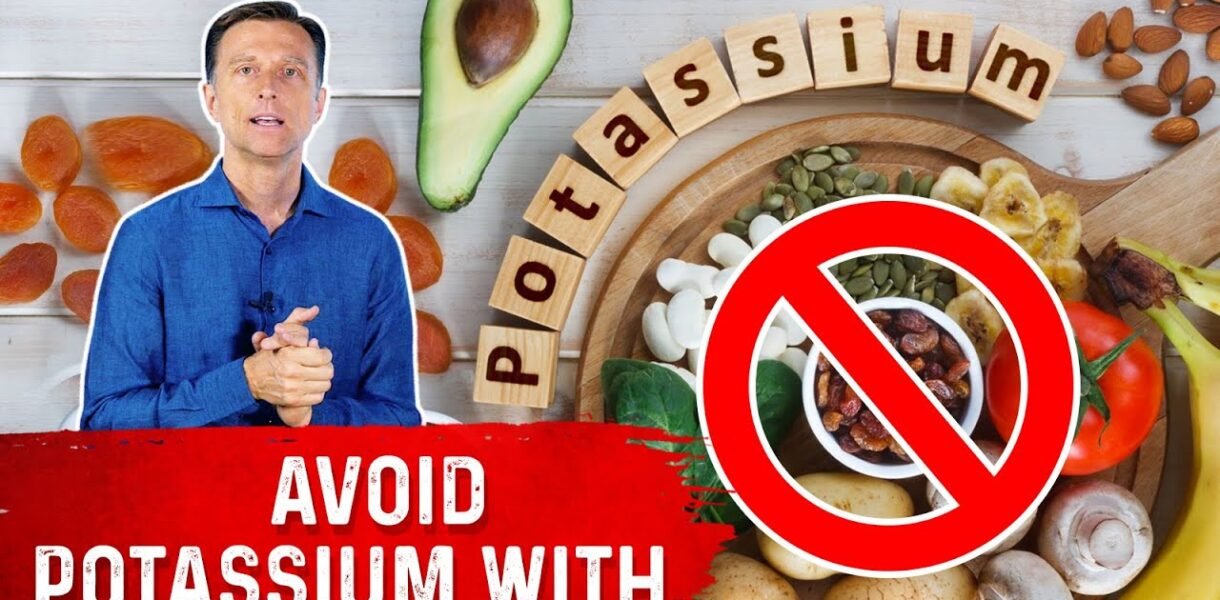Table of Contents
Welcome to our informative article on when you should not take extra potassium. In this article, we will explore important considerations regarding potassium intake, including conditions like hyperkalemia and kidney problems that may require caution. We will also discuss how certain medications can interact with potassium levels. By understanding these factors, you can make informed decisions and maintain a balanced approach to your potassium intake. Read on to learn more about when it is best to avoid extra potassium and ensure your well-being.
Potassium deficiency
Today we’re gonna talk about potassium and when you should not take extra potassium .
The typical situation is that people are deficient potassium and they need more potassium .
And it’s actually a rare , condition where you would need to cut back .
Extra Potassium
Now when I’m talking about excess potassium , you have this condition called hyperkalemia .
This is too much potassium in your blood .
98% of all the potassium is inside the cell versus the outside the cell .
How to know what’s going on with your potassium
In order to really know what’s happening with potassium , I would recommend taking an intracellular potassium test .
And , you can look it up online to try to find out where you could take it .
I think it’d be a very valuable thing , but that would measure how much potassium is inside the cell .
Symptoms of hyperkalemia

That being said , some of the symptoms with hyperkalemia would be palpitations , muscle weakness , numbness , abnormal heart rate , and shortness of breath .
And these are the identical symptoms by the way when you have hypo , kalemia , which is interesting .
So you can’t really know what’s happening based on the symptom .
You could take a blood test .
| Category | Description |
|---|---|
| When to avoid potassium | Kidney problems, certain medications, and Addison’s disease |
| Foods to lower potassium levels | Apples, berries, cabbage, cauliflower, corn, green beans, lettuce, onions, peppers, rice, squash, watermelon |
| High potassium foods to avoid | Bananas, oranges and orange juice, potatoes, tomatoes and tomato products, spinach, avocado, beans and legumes, dairy products, nuts and seeds, chocolate |
| Highest potassium food | Banana |
| Other high potassium foods | Potatoes, tomatoes, spinach, avocados |
| Importance of potassium | Essential mineral for proper body function, necessary for muscle contractions, nerve function, and heart health |
| Risks of excessive potassium | Hyperkalemia, a condition where potassium levels in the blood are too high, can disrupt the normal electrical activity of the heart and lead to life-threatening arrhythmias |
| Who should limit potassium intake | Individuals with kidney problems, those taking certain medications, and people with Addison’s disease |
| How to know if you need to limit potassium intake | Consult with a healthcare professional or a registered dietitian who can provide personalized guidance and recommendations based on your specific needs |
| Importance of balanced diet | Maintaining a balanced and varied diet that includes potassium-rich foods is beneficial for most individuals |
Top conditions where you should avoid potassium
However , these are the top 3 conditions where you would not wanna take potassium and I’m gonna tell you why .

First 1 is stage 5 kidney disease .
That would be end stage renal failure .
Renal meaning kidney .
So if the kidneys are really diseased you would not want to take potassium .
However , this is rare and potassium normally protects the kidney .
It helps the kidney especially with blood pressure .
In fact , it can probably help you lower your blood pressure .
So just because you have kidney disease doesn’t mean you don’t need normal amounts of potassium .
So you just need to check with your doctor .

They’re gonna tell you when you should avoid potassium or take potassium if you have a kidney problem
And the real issue with this is that if the kidney is diseased and it stops filtering and you’re taking more potassium , you won’t be able to release it and get rid of the excess amount and too much potassium could be a problem .
But if you have healthy kidneys , it’s almost impossible to develop hypercalamine , not too much potassium in the blood through taking too much potassium .
Because simply your body can easily get rid of excessive amounts of potassium mainly from the function of aldosterone .
This is a hormone from the adrenal glands and the purpose of aldosterone is to retain sodium and get rid of excess potassium .
So let me just kind of cover this next reason and that’s if you had an aldosterone deficiency .
And that can come from , adrenal failure , several other diseases of the adrenal gland in which you just don’t have any more aldosterone .
In that case , you won’t be able to regulate properly the potassium and it can go too high .
Again , very rare .
Addison’s disease .
This is a condition also rare where you basically lose the function of your adrenal glands .

And in that state , you you lose a lot of weight , your skin gets bronzed , the inside of your lips and even your lips can get blue , your immune system is very very fragile and you lose a ton of salt or basically sodium .
So if you were to take excessive amounts of potassium , guess what you’re gonna do ?
You’re gonna drive down sodium even more .
Well , Addison’s disease is a state where you really need more salt And a patient with this condition should be taking a ton of salt through the day to actually maintain the adrenal function .
And they should definitely avoid potassium because this is the mineral that they’re having a problem with
They have enough potassium , but they don’t have enough sodium .
Insulin and potassium
And as a side note , insulin helps you absorb potassium in your cells .
And if you have insulin resistance like a lot of people have , guess what ?
You’re generally gonna be deficient in potassium .
You’re not gonna have enough potassium in cells , which is a more common condition .
So taking more potassium will help regulate insulin and definitely help insulin resistance .
Potassium-rich foods:
- Vegetables:
- Beet greens, cooked: 1309mg of potassium per 1 cup [1]
- Lima beans, cooked: 969mg of potassium per 1 cup [1]
- Swiss chard, cooked: 961mg of potassium per 1 cup [1]
- Potato, baked with skin: 926mg of potassium per medium-sized potato [1]
- Yam, cooked: 911mg of potassium per 1 cup [1]
- Spinach, cooked: 839mg of potassium per 1 cup [1]
- Carrot juice, 100%: 689mg of potassium per 1 cup [1]
- Carrots, raw: 410mg of potassium per 1 cup [1]
- Broccoli rabe (rapini), cooked: 550mg of potassium per 1 cup [1]
- Cauliflower, raw: 320mg of potassium per 1 cup [1]
- Fruits:
- Durian: 1059mg of potassium per 1 cup [1]
- Sapote or Sapodilla: 794mg of potassium per 1 cup [1]
- Jackfruit: 739mg of potassium per 1 cup [1]
- Kiwifruit: 562mg of potassium per 1 cup [1]
- Banana: 451mg of potassium per medium-sized banana [1]
- Apricots: 401mg of potassium per 1 cup [1]
- Cherries: 306mg of potassium per 1 cup [1]
- Peach: 293mg of potassium per 1 cup [1]
- Dairy and Fortified Soy Alternatives:
- Yogurt, plain, nonfat: 625mg of potassium per 8 ounces [1]
- Milk, fat-free (skim): 382mg of potassium per 1 cup [1]
- Soy beverage (soy milk), unsweetened: 292mg of potassium per 1 cup [1]
- Protein Foods:
- Clams: 534mg of potassium per 3 ounces [1]
- Skipjack tuna: 444mg of potassium per 3 ounces [1]
- Shad: 418mg of potassium per 3 ounces [1]
- Mullet: 389mg of potassium per 3 ounces [1]
- Pollock: 388mg of potassium per 3 ounces [1]
- Rainbow trout, freshwater: 383mg of potassium per 3 ounces [1]
Learn more:
- Food Sources of Potassium | Dietary Guidelines for Americans
- Potassium Rich Foods: 18 Foods High in Potassium
- Potassium-Rich Foods: A Comprehensive Guide
key Points:
- Typically people are deficient in potassium, and they need more potassium. It’s actually rare that you would need to avoid potassium.
- What we’re talking about is hyperkalemia, which is too much potassium in the blood.
- How to know what’s going on with your potassium: Take an intracellular potassium test.
Symptoms of hyperkalemia:
• Palpitations
• Muscle weakness
• Numbness
• Abnormal heart rate
• Shortness of breath
Top conditions where you should avoid potassium:
- Stage 5 kidney disease
- Addison’s disease
- Aldosterone disease
As a side note, insulin helps you absorb potassium in your cells. If you have insulin resistance, you’re generally going to be deficient in potassium. In this situation, taking potassium will help with insulin resistance
DATA:
https://ods.od.nih.gov/factsheets/Potassium-Consumer
FAQ:
When should you avoid potassium?
- Kidney problems: Individuals with kidney disease or impaired kidney function may need to limit their potassium intake. The kidneys help regulate potassium levels in the body, and when they are not functioning properly, potassium can build up in the blood, leading to hyperkalemia. In such cases, it is important to follow a low-potassium diet as advised by a healthcare professional.
- Medications: Some medications, such as certain diuretics and potassium-sparing medications, can increase potassium levels in the body. If you are taking such medications, your healthcare provider may recommend avoiding high-potassium foods or monitoring your potassium intake closely.
When should I stop taking potassium?
It is important to note that potassium supplements should only be taken under the guidance of a healthcare professional. If you have been prescribed potassium supplements and are experiencing any adverse effects or changes in your health, it is important to consult with your healthcare provider. They will be able to assess your individual situation and determine if stopping or adjusting the potassium supplement is necessary.
Who shouldn’t eat a lot of potassium?
While potassium is an essential nutrient, there are certain individuals who may need to limit their potassium intake. These include:
- Individuals with kidney problems: As mentioned earlier, individuals with kidney disease or impaired kidney function may need to limit their potassium intake to prevent hyperkalemia.
- Those taking certain medications: Certain medications can increase potassium levels in the body. If you are taking medications that affect potassium levels, your healthcare provider may advise you to limit your potassium intake.
Why is potassium not good for you?
Potassium is an essential mineral that is necessary for the proper functioning of the body. However, excessive potassium levels in the blood can be harmful. This condition, known as hyperkalemia, can disrupt the normal electrical activity of the heart and lead to life-threatening arrhythmias.
In individuals with kidney problems, the kidneys may not be able to effectively remove excess potassium from the body, leading to a buildup in the blood. This is why individuals with kidney disease or impaired kidney function may need to limit their potassium intake.
It is important to note that for most individuals, maintaining a balanced and varied diet that includes potassium-rich foods is beneficial. However, if you have specific health conditions or are taking certain medications, it is important to consult with a healthcare professional to determine the appropriate level of potassium intake for you.
What foods to eat to lower potassium levels?
If you need to lower your potassium levels, it is important to focus on consuming foods that are lower in potassium. Some low-potassium food options include:
- Apples
- Berries (such as strawberries and blueberries)
- Cabbage
- Cauliflower
- Corn
- Green beans
- Lettuce
- Onions
- Peppers
- Rice
- Squash
- Watermelon
It is important to note that the potassium content of foods can vary, and individual dietary needs may vary as well. It is best to work with a healthcare professional or a registered dietitian who can provide personalized guidance and recommendations based on your specific needs.
High potassium foods to avoid:
If you need to limit your potassium intake, it is important to avoid or limit high-potassium foods. Some high-potassium foods to be mindful of include:
- Bananas
- Oranges and orange juice
- Potatoes
- Tomatoes and tomato products
- Spinach
- Avocado
- Beans and legumes
- Dairy products (such as milk and yogurt)
- Nuts and seeds
- Chocolate
Again, it is important to work with a healthcare professional or a registered dietitian who can provide personalized guidance and recommendations based on your specific needs.
Which food is highest in potassium?
The food that is highest in potassium is typically the banana. Bananas are known for their high potassium content, making them a popular choice for individuals looking to increase their potassium intake. However, it is important to note that there are other foods that are also high in potassium, such as potatoes, tomatoes, spinach, and avocados.
High potassium drinks to avoid:
When trying to limit potassium intake, it is important to be mindful of not only the foods you consume but also the drinks you consume. Some high-potassium drinks to avoid or limit include:
- Orange juice
- Tomato juice
- Coconut water
- Sports drinks
- Certain smoothies or fruit juices made with high-potassium fruits
It is important to read labels and be aware of the potassium content in the drinks you consume. Opting for lower-potassium alternatives, such as water or herbal teas, can be a good choice when trying to limit potassium intake.
Low potassium foods for kidney patients:
For individuals with kidney disease or impaired kidney function, it may be necessary to follow a low-potassium diet to prevent hyperkalemia. Some low-potassium foods that can be included in a kidney-friendly diet include:
- Apples
- Berries (such as strawberries and blueberries)
- Cabbage
- Cauliflower
- Corn
- Green beans
- Lettuce
- Onions
- Peppers
- Rice
- Squash
- Watermelon
It is important to work with a healthcare professional or a registered dietitian who specializes in kidney health to develop a personalized low-potassium meal plan that meets your specific dietary needs.
Is chicken high in potassium?
Chicken is generally considered to be a lower-potassium protein option compared to other meats. However, the potassium content can vary depending on the cut of chicken and the cooking method. In general, skinless chicken breast is lower in potassium compared to other cuts of chicken, such as drumsticks or thighs. It is always a good idea to consult a registered dietitian or refer to reliable sources for specific potassium content information.
What are some low potassium fruits?
If you need to limit your potassium intake, there are several low-potassium fruits that you can enjoy. Some examples of low-potassium fruits include:
- Apples
- Berries (such as strawberries and blueberries)
- Cherries
- Grapes
- Peaches
- Pears
- Plums
- Watermelon
These fruits can be a delicious and nutritious addition to your diet while keeping your potassium intake in check. However, it is important to remember that individual dietary needs may vary, so it is best to consult with a healthcare professional or a registered dietitian for personalized recommendations based on your specific needs.




